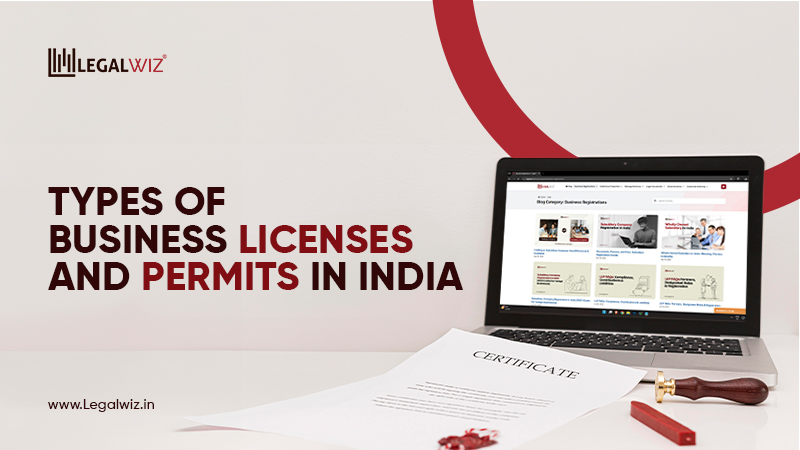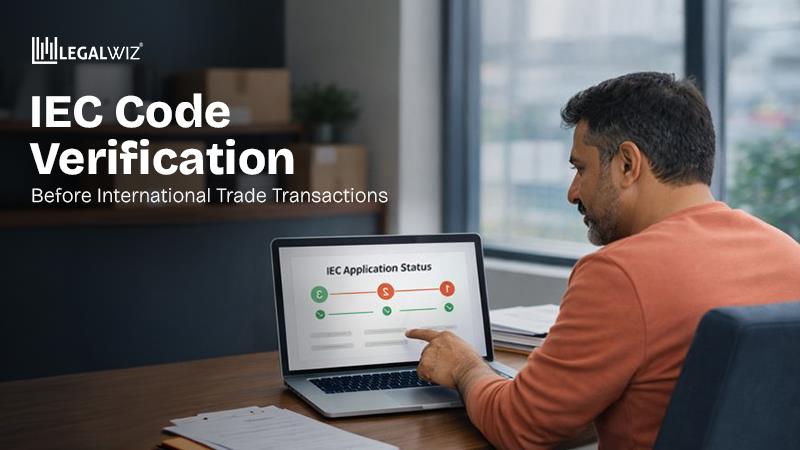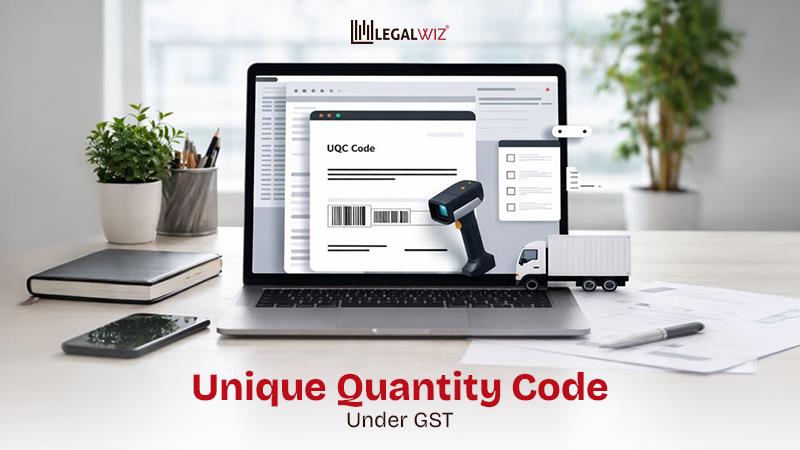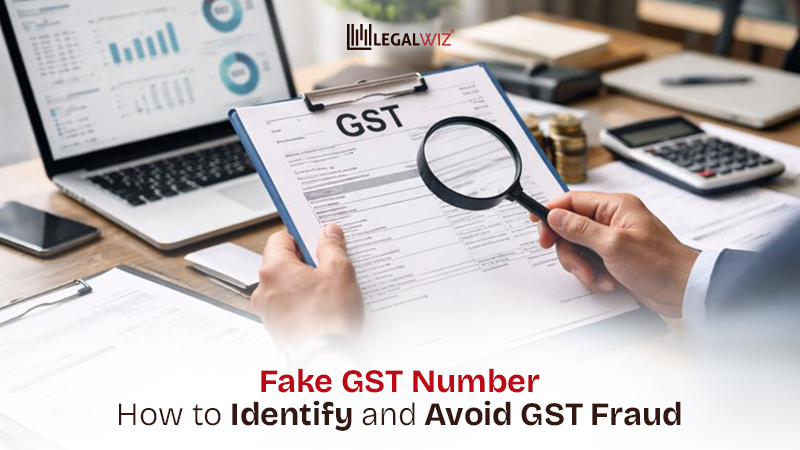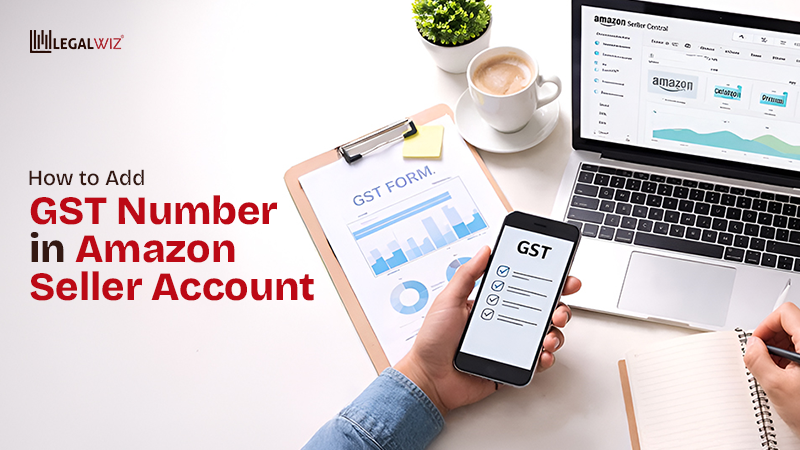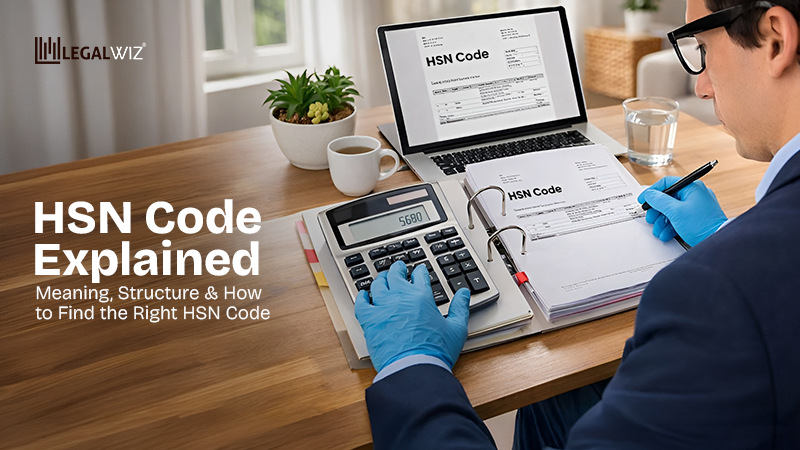Types of Business Licenses and Permits in India with examples
Picture this: you’ve got an amazing business idea, have startup capital, and own that stone-cold determination to achieve it. But here’s one thing standing between you and your first customer – paperwork.
Every Indian business owner faces this reality. Only if it were so easy to just hang up a sign and start selling. Business licenses are the government’s ticket to keep an eye on who you are, what are you doing and whether you are doing it safely.
Well, these permits and licenses are not mere formalities. They are actually legal permissions which enable your company to operate smoothly, gain confidence of stakeholders as well as customers, and prevent you from getting penalized, which may hinder your company’s growth.
The type of licenses you will need for your business is strongly determined by these criteria: your industry, your location, and your business model. Be it the food and beverage industry, or an e-commerce store, or industries like manufacturing and healthcare, each industry and sector has specific regulations on different levels.
It doesn’t matter if you are running a small proprietorship or a one-person company; some of the licenses, like GST Registration or a Shop & Establishment Registration, are just mandatory. You can’t escape those!
Between your vision and its execution, think of licenses as a bridge that connects those. They ensure your recognition by the authorities, respect by customers, and compliance with the law.
Just like trademark registration is mandatory to protect your brand identity, getting the right business licenses is a necessity for long-term growth and success.
We have literally made you a Bible-like guide where we will break down different types of licenses in India, difference between business licenses and permits, eligibility criteria to get a license, the required documents, sector-specific licenses and permits, and step-by-step procedure to obtain them.
Whether you are a new entrepreneur or merely looking for ways to diversify your enterprise, this comprehensive guide is your one-stop resource for taking the guesswork out of the world of business licenses.
Business Licenses vs. Permits: What’s the Difference?
While it appears as though a license and a permit are serving the same purpose, and many young entrepreneurs these days confuse the two terms, well, a significant gap exists between the two.
- Business License: A license is an official approval issued by a government agency, enabling you to begin and conduct a specific type of business. It is more universal in nature and frequently necessary at the initiation of business operations. For instance, a Shop and Establishment License provides a retail outlet or office with legal recognition to operate within a specific state.
Also read Shop Act License in India: Process, Documents & Guide
- Business Permit: A permit is generally more particular. It governs specific activities in your business and enforces compliance with industry practices, safety regulations, or neighborhood rules. An example is a Fire Department NOC (No Objection Certificate), which is a permit that you will need to secure if your commercial building falls under fire safety norms.
In simple terms:
- A license gives you the right to operate.
- A permit ensures you follow the rules while operating.
For example, when a restaurant obtains an FSSAI license, it allows for legal operation in the food business. On the other hand, a health trade permit from the local level authority, for example a local municipality, ensures that there is some assurance that proper standards for hygiene and safety are met. Not having one or the other could result in fines, investigations, suspensions of business activities, or even court action.
Eligibility Criteria for a Business License in India
Not all entrepreneurs automatically qualify for all licenses for running a business. The government assesses a few minimum criteria before granting permission. Though the eligibility criteria vary depending upon the type of license, the following are the most popular requirements:
1. Business Structure
You need a registered business entity like a sole proprietorship, partnership, LLP, or Private Limited Company.
| If you’d like to learn more about each option, here are quick guides you can explore: ✔ Understanding Private Limited Companies ✔ Everything You Need to Know About LLPs ✔ A Beginner’s Guide to Sole Proprietorships ✔ How Partnership Firms Work in India ✔ Setting Up a Subsidiary Company in India Still not sure which structure is right for you? Here’s a detailed guide on how to choose the best business structure for your startup. |
Certain licenses like the FSSAI License or Import Export Code (IEC) are only issued once the entity is legally registered.
You can check our step-by-step resources on how to apply for an FSSAI license and how to apply for an IEC code for detailed guidance.
2. Nature of Business Activity
The type of license depends on your sector. For example, a textile trader needs a Shop & Establishment License, while a pharma business must obtain Drug & Cosmetics approval.
3. Location of the Business
State or municipal laws do intervene. One restaurant in Mumbai might require a completely other set of licenses than another restaurant from a different city such as Ahmedabad, when both these restaurants are selling food.
4. Premises Compliance
The physical space of your business should meet fire safety, health, and zoning regulations. This is often checked before a license is issued.
5. Documentation Readiness
Authorities need documents like identification, the certificate of incorporation for the company, the address proof of the premises, NOC from the landlord, etc. If documents are not drafted and finalized, this may cause a time lag.
If you’re unfamiliar with the Certificate of Incorporation, here’s a quick guide on what a Certificate of Incorporation (COI) is and why it matters.
6. Sector-Specific Regulations
Regulated sectors such as telecommunications, finance, and the health industry require rigid compliance with the eligibility requirements. For example, a hospital would require compliance with the regulations of the bio-medical waste management prior to issuance of licenses.
For new entrepreneurs, this list is helpful in grasping these eligibility standards right from the beginning, so as to prepare better. Instead of rushing at the last minute, you can assemble your compliance and documents around the necessary standards from the commencement of their businesses.
Types of Business Licenses in India
Now that you have an understanding of the types, let’s look at the types of licenses most applicable to businesses in India. These licenses are the legal foundation and distinguished based on the type of industry you operate in.
1. Shop & Establishment License
- Issued by state governments under the Shop and Establishment Act.
- Mandatory for any office, store, or commercial establishment.
- Covers working hours, employee rights, holidays, and workplace conditions.
For a step-by-step process, here’s a detailed guide on how to get Shop and Establishment registration in India
2. Trade License
- Granted by local municipal authorities.
- Required for businesses engaged in trade, services, or manufacturing within municipal limits.
- Example: Restaurants, hotels, and small factories.
- Validity: Usually renewed annually.
3. Goods and Services Tax (GST) Registration
- Mandatory if annual turnover exceeds the threshold (currently ₹40 lakhs for most states, ₹20 lakhs for NE states and services).
- Even small e-commerce sellers must obtain GST to operate on platforms like Amazon or Flipkart.
Read our detailed guide on GST Registration here – GST Registration – Process, Rules, Forms and Documents Required.
4. Professional Tax License
- Levied by state governments on professionals, employees, and trades.
- Employers must deduct and pay this tax on behalf of employees.
- Example: Applicable in states like Maharashtra, Karnataka, and West Bengal.
5. FSSAI License (Food License)
- Issued by the Food Safety and Standards Authority of India.
- Mandatory for businesses dealing in food processing, packaging, storage, or sale.
- Categories: Basic, State, and Central depending on turnover and size.
- Example: A home-based cloud kitchen earning ₹15 lakhs annually requires a State FSSAI license.
Also, read our step-by-step guide on how to apply for FSSAI license
6. Import Export Code (IEC)
- Issued by DGFT (Director General of Foreign Trade).
- Mandatory for businesses engaged in import/export of goods and services.
- Example: A Surat-based textile exporter must obtain IEC before shipping fabrics overseas.
7. Udyam/MSME Registration
- For micro, small, and medium enterprises.
- Provides access to government schemes, subsidies, and loans.
- Not always mandatory, but highly beneficial for growth.
8. Factory License
- Mandatory under the Factories Act for manufacturing units with 10+ workers (using power) or 20+ workers (without power).
- Example: A furniture-making unit in Punjab employing 15 workers must obtain this license.
9. Drug & Cosmetics License
- Required to manufacture, market, or distribute pharmaceuticals, cosmetics, or medical devices.
- Issued by state drug control authorities.
10. Environmental Clearances (Pollution Control Board License)
- Needed if your business emits waste, smoke, or pollutants.
- Example: Dyeing units, chemical plants, paper manufacturing.
11. Other Industry-Specific Approvals
- RBI approvals for NBFCs.
- SEBI registration for stockbrokers.
- Telecom licenses for communication services.
When compiled, all these licenses make up the ‘compliance toolkit’ for businesses in India. Skipping even one can cause penalties, discredit, and closure of your business.
Common Licenses and Permits in India
These are the most frequently required licenses that almost every new business must secure.
| License/Permit | Issued By | Applicability |
| Business Incorporation Certificate | Ministry of Corporate Affairs (MCA) | All registered entities |
| GST Registration | GST Department | Businesses crossing turnover threshold/ selling online |
| Shop & Establishment License | State Government/ Local Authority | Offices, shops, and establishments |
| Trade License | Municipal Corporation | Businesses operating within municipal limits |
| Professional Tax License | State Governments (select states) | Employers with staff |
| FSSAI License | FSSAI | Food businesses |
| Import Export Code (IEC) | DGFT | Businesses engaged in import/export |
Sector-Specific Licenses and Permits
Beyond the basics, some industries require approvals tailored to their activities.
| Sector | License/Permit | Purpose | Example |
| Food & Beverage | FSSAI License, Health Trade License, Liquor License | Food safety, hygiene, sale of alcohol | Café serving wine |
| Healthcare & Pharma | Drug & Cosmetics License, Biomedical Waste Authorization | Regulate medicines & waste disposal | Retail pharmacy |
| Manufacturing | Factory License, Pollution Control Consent | Worker safety, environmental compliance | Furniture unit with 15 workers |
| Import-Export | IEC Code, APEDA Registration | Customs clearance, agri exports | Rice exporter |
| IT & Telecom | STPI Registration, Telecom License | Software exports, telecom services | SaaS startup exporting software |
| Finance | RBI Registration, SEBI License | NBFC operations, stock trading | Investment advisory firm |
Documents Required for Business License Registration
We feel you! It is overwhelming all the documentation in India around the licenses but most authorities request pretty similar sets of documents. If you have all the necessary paperwork prepared ahead of time, you will save yourself some time and anxiety. Here is a simplified list:
1. Business Identity Proof
- Certificate of Incorporation (for companies/LLPs)
- Partnership deed (for partnerships)
- Proprietor’s Aadhaar/PAN (for sole proprietorships)
2. Address Proof of Business Premises
- Rental agreement or lease deed (if rented)
- Ownership documents (if owned)
- Utility bill (electricity/water) not older than 2–3 months
3. Identity & Address Proof of Owners/Directors
- PAN card
- Aadhaar card/ Passport/ Voter ID
4. Photographs
- Passport-sized photos of owners, directors, or partners
5. Financial Records (where applicable)
- Bank account details
- PAN of the business entity
- Audited financial statements (for certain sector-specific licenses)
6. Industry-Specific Documents
- Food businesses: Layout plan of the kitchen/premises for FSSAI
- Factories: Details of machinery, worker strength for Factory License
- Exporters: Bank Certificate & Import Export Code (IEC) application
7. NOC from Local Authorities/ Landlord
- Required for businesses operating on rented premises
- Confirms landlord has no objection to commercial use of property
Sage Advice for Entrepreneurs:
Always review the specific checklist of documents for the license you are applying for. Missing even one piece of paperwork will delay the approval process by weeks.
How to apply for a business license in India?
Obtaining your business licenses may sound daunting at first, but it’s really fairly simple once you understand the process. The process is different depending on what kind of license you’re searching for – some you deal with the federal government, others with your state or local authority.
1. Figure Out The Required License
- Begin by examining what your business does, where it is located, and what business you’re in.
- Consider an example of a Mumbai bakery – they’d require GST registration, a Shop & Establishment license, FSSAI food safety certification, and a local trade license. Every business is unique, so your list may be entirely different.
2. Get Your Paperwork Together
- Nothing slows things down like missing documents. Keep both digital copies and physical ones handy. Most rejections happen because of incomplete applications, the reason being that someone forgot to include something important.
3. Submit Application Online or Offline
- Central Licenses (such as GST, IEC, FSSAI) → Filed online via government portals.
- State & Local Licenses (such as Trade License, Shop & Establishment) → Usually state-level portals or municipal corporation offices.
4. Pay Government Fees
- Fees depend on the license type and scale of business.
- A basic food license like FSSAI might only run you ₹100 per year, while trade licenses can range anywhere from ₹500 to ₹50,000 based on your location and business size.
5. Verification & Inspection
- Don’t be surprised if officials want to check out your location, especially for anything involving health, safety, or manufacturing. Fire department approvals always include someone coming by to make sure everything’s up to code.
6. Approval & Issuance of License Certificate
- Once verified, you’ll receive your license certificate either physically or digitally.
- This certificate must often be displayed at your place of business.
7. Renewal & Compliance
- Some licenses are one-time (e.g., IEC), but many require annual or periodic renewal (Trade License, FSSAI, Factory License).
- Failing to renew on time may lead to suspension or penalties.
Pro tip: Create a simple calendar reminder system for all your renewal dates. Keep backup copies of everything stored digitally – you’ll thank yourself later when you need them quickly.
Business License Costs in India
The cost of obtaining a business license in India varies depending on the type of license, the size of your business, the state, and whether it is central or state-level. Here’s an approximate overview:
| License/ Permit | Government fee (INR) — typical range | Validity | Notes/Practical tips |
| Shop & Establishment License | Varies by state; commonly ₹500 – ₹5,000 (can be higher in metros) | 1–5 years (depends on state) | Fee and validity set by state labour departments; some states allow multi-year registration. Check your state portal. |
| Trade License (Municipal) | Varies widely — ₹2,000 – ₹50,000 (examples show lower fees for small trades, higher for bigger commercial activities) | Usually annual (municipal rules differ) | Issued by municipal corporation; fees and categories (trade types/ built-up area) differ by city (e.g., BBMP fee schedule shows many categories). Budget for inspection/renewal fees. |
| GST Registration | Nil (no government fee) | Lifetime (unless cancelled) | Registration is free on GST portal. Penalties apply if liable but not registered — see penalties table. |
| FSSAI (Food license/ registration) | Basic registration ₹100; State licence ₹2,000–₹5,000; Central licence ₹7,500 (per annum) | 1–5 years (depends on licence) | Fee depends on turnover/ activity; FoSCoS (FSSAI portal) and official fee schedules confirm these slabs. |
| Import Export Code (IEC) | ₹500 (DGFT government fee) | Lifetime | DGFT charges a standard fee (portal payment); other service charges may apply if you use a consultant. |
| Factory Licence (Factories Act) | Varies by state/ municipal rules — often ₹5,000+ depending on scale; many local bodies align fees with property tax/ FY cycle | Often 1/5/10 years (varies) | Validity options (1/5/10 years) are common in states like Delhi; some municipal bodies are simplifying/aligning this with property tax schedules. Fees depend on capacity, workers, zone. |
| Drug & Cosmetics Licence | Typical state application fees for retail/wholesale: ~₹1,500–₹3,000; manufacturing & specialized licences cost more (₹5k–₹50k+ depending on type) | 1–5 years (varies by licence) | Fees differ by form (Form 20/21 for retail, Form 20B/21B for wholesale, Form 25/28 for manufacturing). States may add inspection/renewal charges. Check state drug controller. |
| Fire Safety NOC/ Fire Licence | Typically starts ~₹5,000; can be higher for large premises | 1–3 years (varies by state/ dept) | Issued by local fire authority after inspection. Fee depends on building type (restaurant, mall, hotel) and risk profile. |
Notes on Costs
- Many fees are set or administered by state/municipal authorities and can vary by city, premise size, turnover, or activity.
- Online application often reduces processing fees.
- Certain licenses may require additional expenses for inspections, professional help, or documentation.
- MSME/Udyam registration is free and can save costs on government schemes.
Tip: Keep a budget buffer for license costs and renewals, they are recurring for many permits and critical for compliance.
Penalties for Operating Without Licenses
Please note that penalties are license-specific and can include fines, interest, suspension or cancellation of registrations, and in serious cases prosecution. Below are commonly applicable penalty types with authoritative references.
| Violation | Typical penalty/consequence | Example/note |
| Running without Shop & Establishment registration | State-dependent fines (often a few hundred to several thousand rupees); repeated non-compliance can lead to higher fines or closure orders | Penalties vary by state; late-registration fines commonly charged. |
| Failing to obtain/ register under GST (when required) | Penalty = 10% of tax due or ₹10,000 (whichever is higher); in deliberate evasion penalty can be 100% of tax due; late filing attracts daily late fees and interest (e.g., ₹50 CGST + ₹50 SGST per day for many returns; caps apply) | Non-registration/evasion attracts severe penalties; late filing also accrues interest & late fees. |
| FSSAI non-compliance (operating without licence/ poor hygiene) | Fines range from ₹5,000 up to ₹5 lakh depending on offence; business closure/seizure in serious cases | Central FSSAI guidance lists penalties by severity. Ensure registration/ licence and compliance with hygiene norms. |
| Trade License violations | Municipal penalties: fines, suspension, or closure depending on local rules | Municipal corporations (e.g., BBMP) can impose fines and stop operations for unlicensed trade. |
| Environmental/ Pollution/ Factory violations | Heavy fines, orders to stop operations, remediation directions, and potential legal action | Pollution Control Boards and factory inspectors can order closure and levy substantial penalties for pollution or unsafe factories. |
| Drug & Cosmetics violations | Penalties range from fines and licence suspension to prosecution; serious violations may include imprisonment (per Drugs & Cosmetics Act) | Operating or distributing drugs without valid licences risks severe penalties and criminal consequences. State drug controllers enforce these rules. |
Important Takeaways
- Non-compliance may result in financial losses, liability exposure, and damage to reputation.
- Startups underestimate the consequences; advance planning for licenses saves time, money, and anxiety.
Wrapping It Up
Ultimately, getting your licenses in order isn’t simply about playing by the book – it’s about laying the foundation for success. Whether you’re opening a corner coffee house, launching an online business, or beginning a factory, determining what permits you’ll need upfront spares you headaches down the road.
Imagine it like this: each successful Indian business has done the same thing. That local restaurant on the corner, that trendy online store you adore, the local producer – they all began with the same forms you see before you right now. Getting licensed correctly right from the start allows you to concentrate on what’s most important: expanding your business and doing business with customers.
Yes, it may seem like a whole lot of work at the time, but believe us – it’s far more convenient to do it correctly the first time than to panic and correct everything after you’re already in the midst of going. And with all your papers in order, doors open that you never knew were there.
When you understand these key areas:
- What licenses actually are and why they matter
- Who qualifies for what
- The different categories and levels available
- What paperwork you need and how to submit it
- What it costs and what happens if you mess up
…you’ll be able to handle all the government requirements without breaking a sweat.
Getting your licenses in order not only avoids trouble – it really does make your business thrive. Your customers trust you more, your investors respect you more, and your partners want to partner with you. Life just goes more smoothly when you’re established properly from the beginning.
LegalWiz takes the headache out of getting licensed in India. We handle everything from GST and food safety permits to import licenses and local business registrations, so you can focus on what you do best – running your business.
Frequently Asked Questions
What licenses do I really need to begin my business?
It all depends on what you’re doing and where you’re doing it. At least you’ll likely require a Shop & Establishment license, GST registration, and a trade permit. If you’re in food, healthcare, or manufacturing, anticipate more requirements.
Can I apply for licenses online?
Most of the larger ones such as GST, food safety, and import-export licenses can be done entirely online. Some local permits have online components, but you may have to go to an office or two.
How much will it cost me?
Fees are in every direction. An ordinary food license will cost approximately ₹100, import licenses are around ₹500, and municipal trade licenses can range from ₹5,000 to ₹50,000. Double-check with the latest fees because they keep changing.
Do I require licenses if I have home-based business?
Definitely. Even home-based businesses usually require Shop & Establishment registration and GST if you’re doing good business. Throw in industry-specific licenses if you’re handling food, medical, or manufacturing.
What if I forget to renew something?
Nothing pleasant. You might incur fines, penalties, or they might close you down until you become compliant again. Government departments tend not to give you a lot of leeway on lapsed licenses.
Can LegalWiz sort everything out for me?
That’s our business. We take care of the whole process for all types of licenses – federal, state, and local – so new companies don’t have to deal with the delays and the penalties.

Amisha Shah
Amisha Shah heads content at LegalWiz.in, where she transforms complex legal concepts into clear, actionable insights. With extensive experience in legal, fintech, and business services, she helps startups and enterprises navigate regulatory challenges through engaging, accurate content that empowers informed business decisions.
